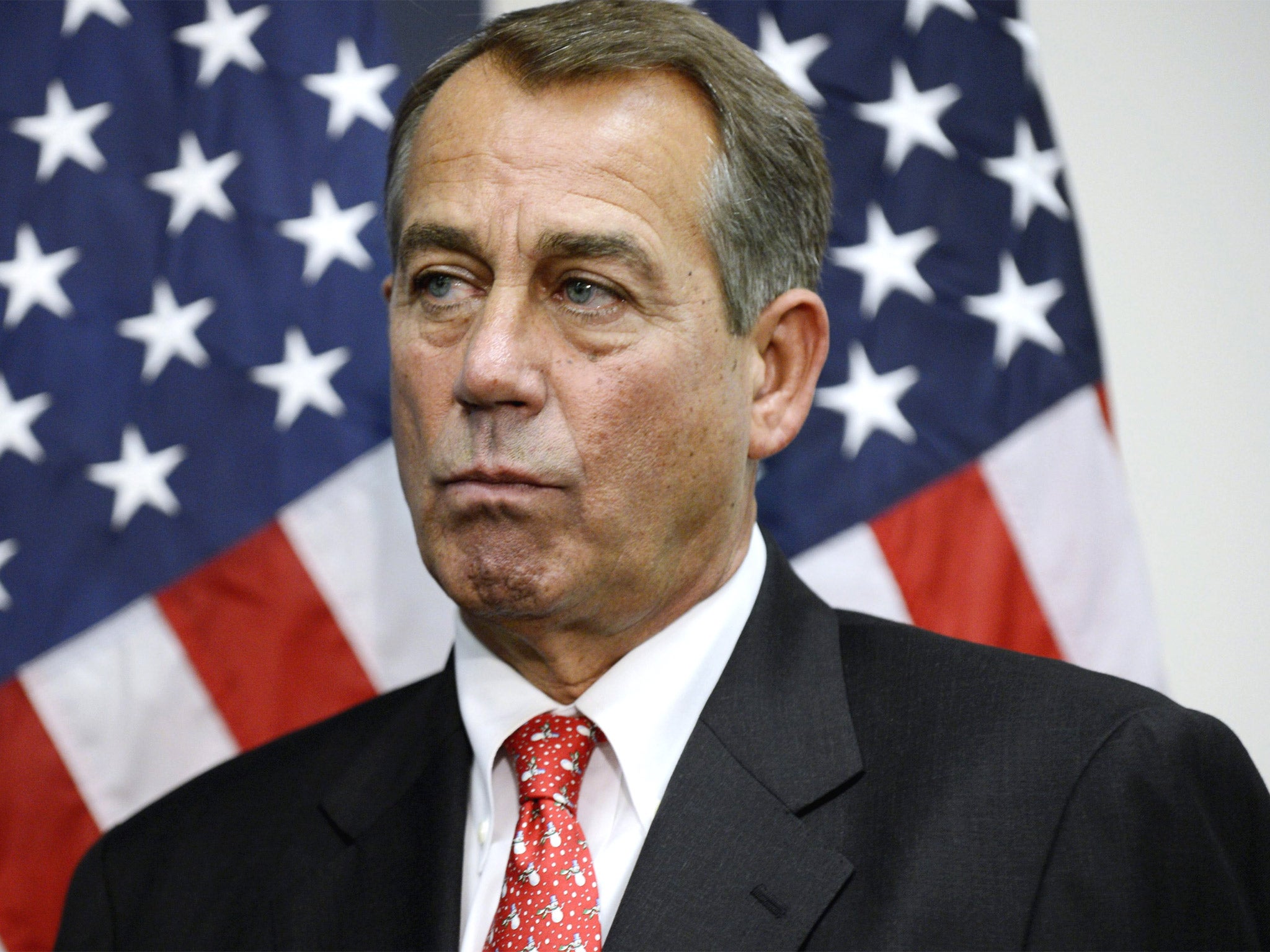Fiscal cliff: Partisan differences narrow in negotiations over US budget
Republican Speaker and White House offer concessions as deadline for automatic cuts nears

Your support helps us to tell the story
From reproductive rights to climate change to Big Tech, The Independent is on the ground when the story is developing. Whether it's investigating the financials of Elon Musk's pro-Trump PAC or producing our latest documentary, 'The A Word', which shines a light on the American women fighting for reproductive rights, we know how important it is to parse out the facts from the messaging.
At such a critical moment in US history, we need reporters on the ground. Your donation allows us to keep sending journalists to speak to both sides of the story.
The Independent is trusted by Americans across the entire political spectrum. And unlike many other quality news outlets, we choose not to lock Americans out of our reporting and analysis with paywalls. We believe quality journalism should be available to everyone, paid for by those who can afford it.
Your support makes all the difference.Negotiations between the White House and Republicans over a complex package of measures to start narrowing the giant gap between what America spends every year and what it collects in taxes appeared yesterday to have accelerated with both sides offering concessions.
Obstacles still remain and even if the Republican Speaker of the House, John Boehner, indeed hammers out a compromise plan with President Barack Obama as early as this week he will still struggle to persuade some members of his own party to vote for it. Some on his right flank, including those from Tea Party, will struggle to swallow the pill if, as now seems certain, it includes some tax increases for the rich.
Much is at stake because a failure to reach a deal by 1 January will mean the automatic triggering of an array of painful austerity measures including quite significant tax increases for almost every working American and a raft of painful cuts in spending. The chilling effect could be enough to knock the US back into recession.
Mr Boehner told members of his party in a private meeting that he would prepare a back-up bill with cuts and higher taxes for families earning over $1m just in case the talks fall apart. But clearly he hopes that won't be needed. "I continue to have hope that we can reach a broader agreement with the White House," he told reporters.
The ice broke last Friday when Mr Boehner for the first time offered some degree of tax-rate increases on the rich. He made the offer quietly while the country was focused on the school shooting in Connecticut. There is also some indication that the tragedy has meant a softening of partisan belligerence in Washington.
"Americans don't need more stress at this time," Mr Boehner said last night when asked why things had suddenly started to move forward.
The distance each must travel to reach a deal is now relatively small. Essentially, Mr Boehner wants a balance between $1trn in spending cuts and $1trn in new revenues over 10 years. Mr Obama wants slightly less pain on the spending side and more meat on the revenue side.
He has already agreed, however, that tax rises should apply only to families earning $400,000 or over, not the $250,000 threshold he had originally proposed.
Mr Obama has also dropped a demand that a final package gives him permanent authority to raise the country's borrowing limit – the debt ceiling – as and when necessary.
It was a fight over raising the debt ceiling last year that damaged the US credit rating and led to the litany of almost indiscriminate spending cuts that will start to come in effect on 1 January if a deal is not done. Mr Obama is instead asking for debt ceiling authority only for two years.
$1trn
Amount Boehner wants in spending cuts and new revenues over 10 years
Join our commenting forum
Join thought-provoking conversations, follow other Independent readers and see their replies
Comments